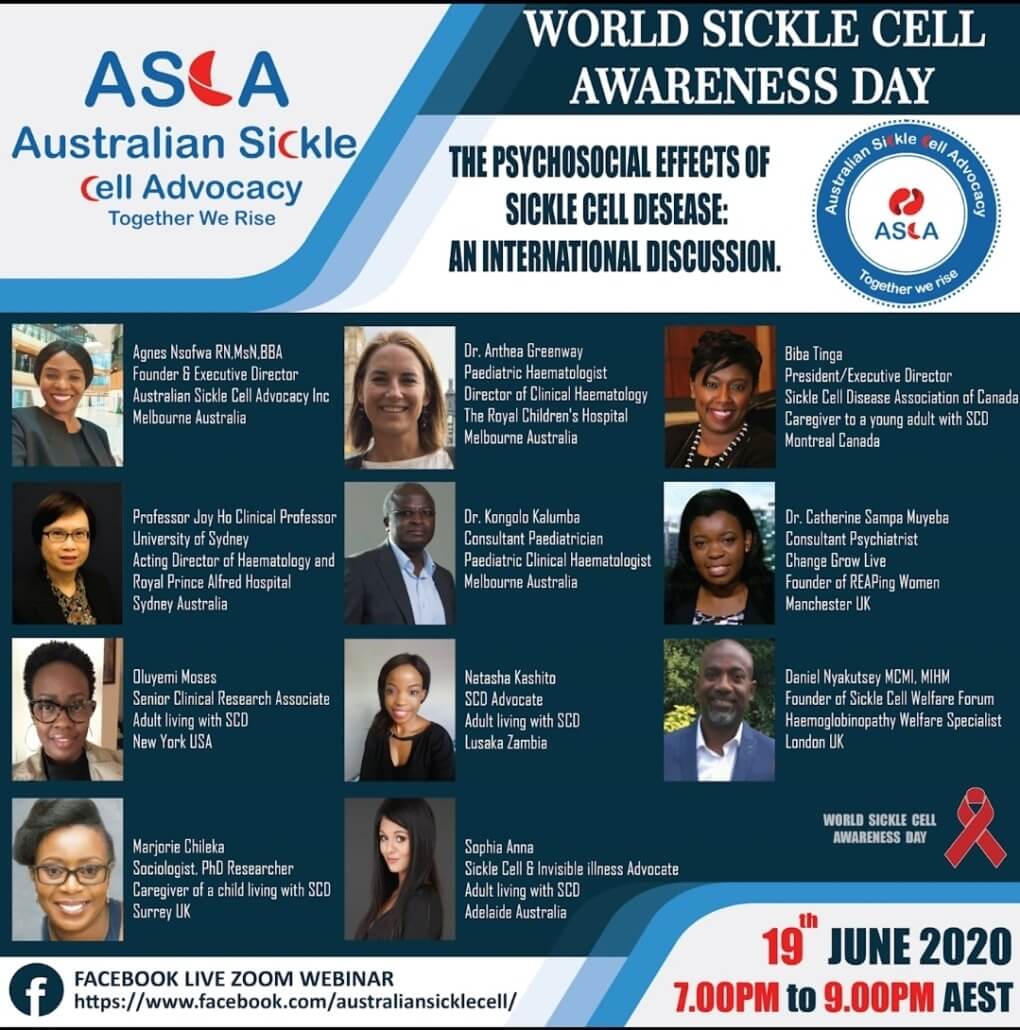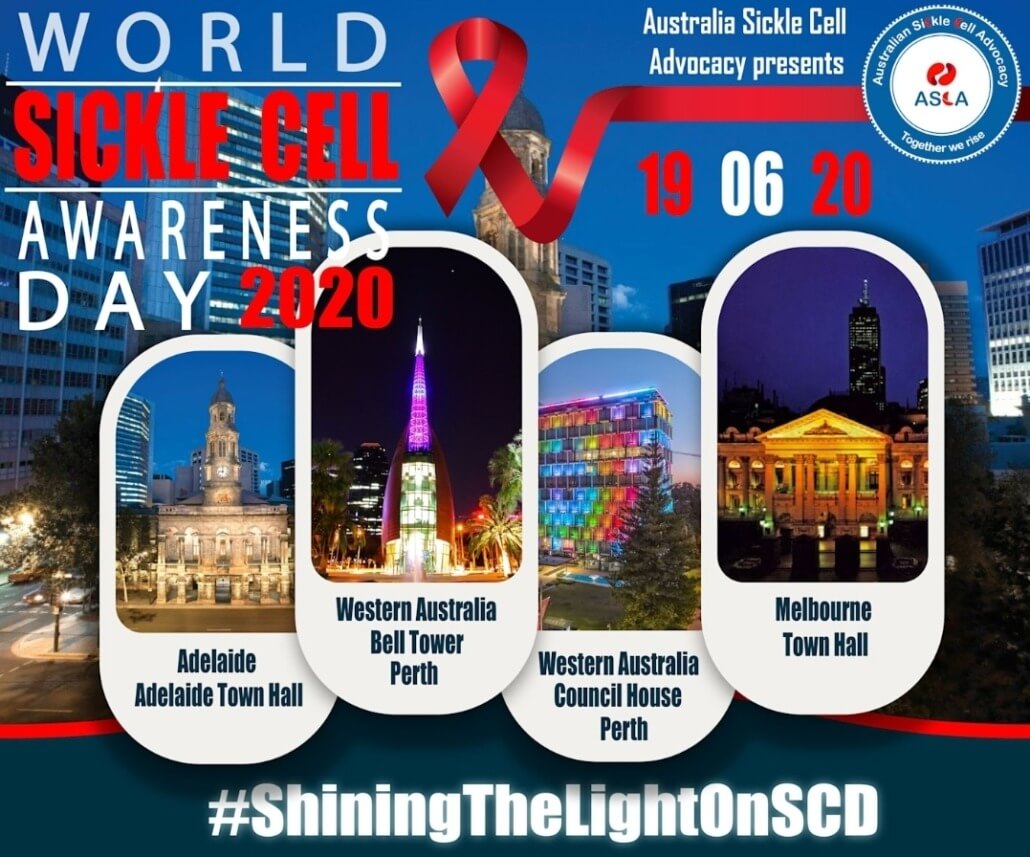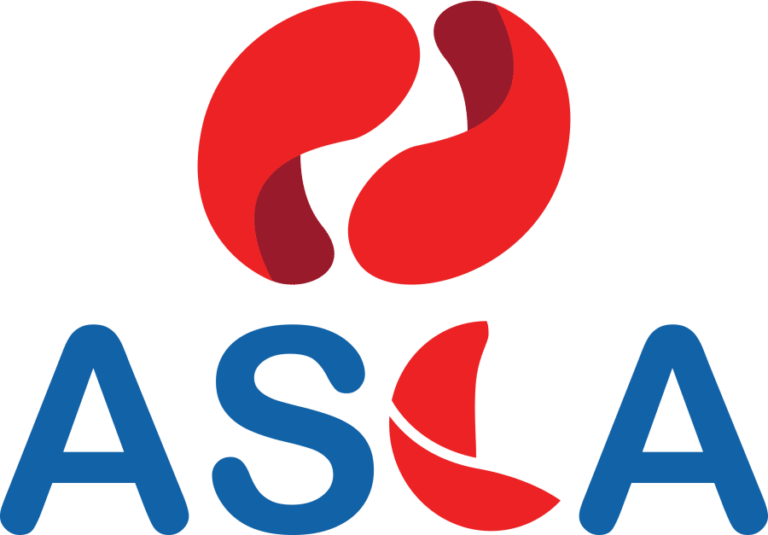June 19th is considered The World Sickle Cell Awareness Day that aims to raise awareness about this genetic condition. Sickle Cell Disease (SCD) is the most common inherited blood disorder in the world. Over 250 million people worldwide have the sickle cell trait with the majority unaware. 300,000 babies are born with severe forms of sickle cell disease annually. Experts estimate that by 2050, over 14 million babies will be born with SCD.
In Australia, unfortunately we are unaware of the exact prevalence of this disease due to lack of a conclusive surveillance database. Even though The Haemoglobinopathy registry at the Monash University has been trying to capture this information, the work is not complete due to limited funding for their project.
On 22nd December 2008, during the plenary session of the 63rd General Assembly of the United, a resolution was passed to recognized ‘sickle cell anaemia as a public health problem’ and urged the Member States and United Nations organizations to raise awareness of sickle cell anaemia.
The World recognised this day for the first time on 19th June 2009.
This day unfortunately is not recognised on the Australian Calendar. We at Australian Sickle Cell Advocacy are advocating to have this day recognised officially on the Australian calendar and we are working with relevant authorities to take our plea to policy makers.
Sickle Cell Disease (SCD) is a group of inherited red blood cell disorders. Healthy red blood cells are round, and they move through small blood vessels to carry oxygen to all parts of the body. In someone who has SCD, the red blood cells become hard and sticky and look like a C-shaped farm tool called a “sickle”. The sickle cells die early, which causes a constant shortage of red blood cells, pain, and other complications.
Early signs and symptoms of sickle cell disease include swelling of the hands and feet; symptoms of anemia, including fatigue, or extreme tiredness; and jaundice. Over time, sickle cell disease can lead to complications such as infections, delayed growth, and episodes of pain, called pain crises. Over a lifetime, sickle cell disease can harm a patient’s spleen, brain, eyes, lungs, liver, heart, kidneys, penis, joints, bones, or skin.
Sickle cell trait is more common in certain ethnic groups, including:
- People of African descent
- Hispanics
- South Asians
- Caucasians from Southern Europe
- People from the Middle East
Sickle cell trait can only be detected by a specific blood test called electrophoresis:
- It is covered by Medicare
- Referral requests are available from GP medical providers.
- Positive sickle cell trait screening results can be discussed with a referred haematologist or genetic counsellor
- Genetic testing is only covered if one is of childbearing age
Management of Sickle Cell Disease is usually aimed at avoiding pain episodes, relieving symptoms and preventing complications and infections. Treatments might include medications and blood transfusions. The only known cure at the moment is through a bone marrow transplant also known as stem cell transplant. But this procedure comes with limitations such as having a matched donor, such as a sibling, who doesn’t have sickle cell anemia. It is also a very risky procedure to undergo and requires a long hospital stay.
This World Sickle Cell Day (June 19), Australian Sickle Cell Advocacy is raising awareness of SCD and encouraging people who at risk of having the sickle cell trait to get tested for to protect the next generation.
Agnes Nsofwa RN, MN, BBA | Founder and Executive Director
Australian Sickle Cell Advocacy Inc
Melbourne VIC 3000 | ABN: 82 317 094 112
P: +61414 309 995 | mail@aussicklecelladvocacy.org | www.aussicklecelladvocacy.org
OTHER ACTIVITIES THAT WE HAVE LINED UP FOR THIS IMPORTANT DAY IN OUR CALENDAR:




Australian Sickle Cell Advocacy Inc (ASCA) is a patient advocacy group supporting the rights of people living with Sickle Cell Disease (SCD) as they navigate the healthcare system in Australia. ASCA is a non-profit organisation started in 2014 and officially registered in October 2018. An advocacy group formed to fill the gap of highlighting the rising numbers of sickle cell disease in Australia. Although rare in some part of the world like Australia, sickle cell disease is affecting a lot of people.
